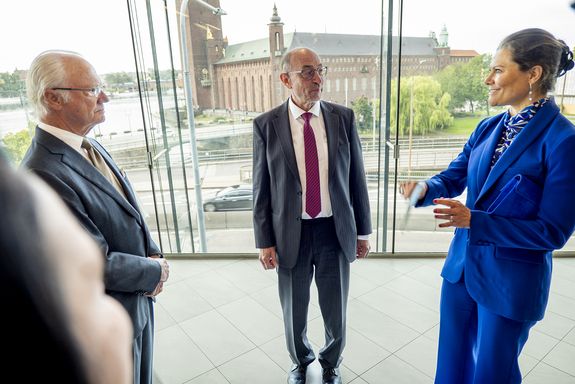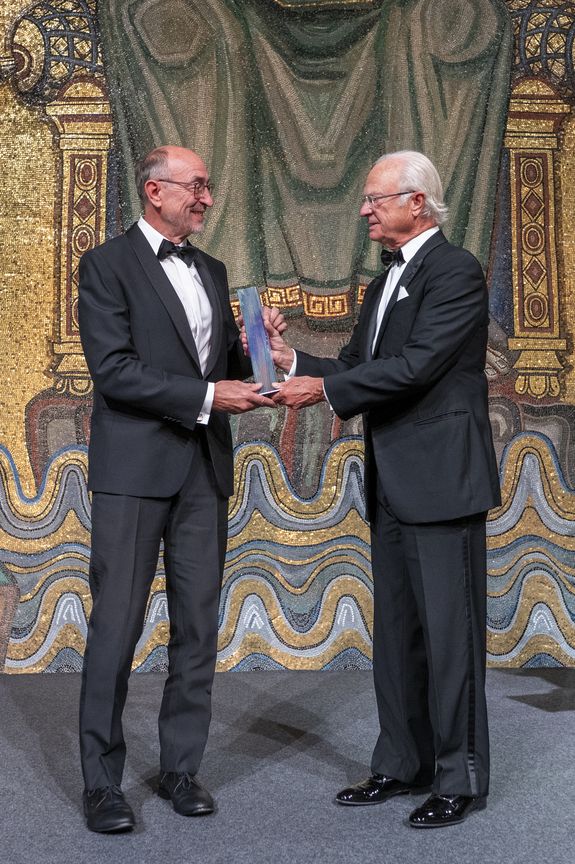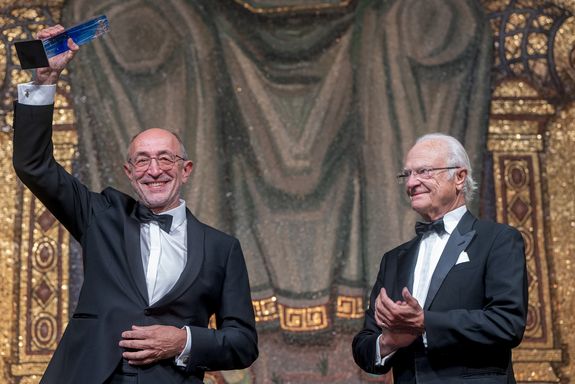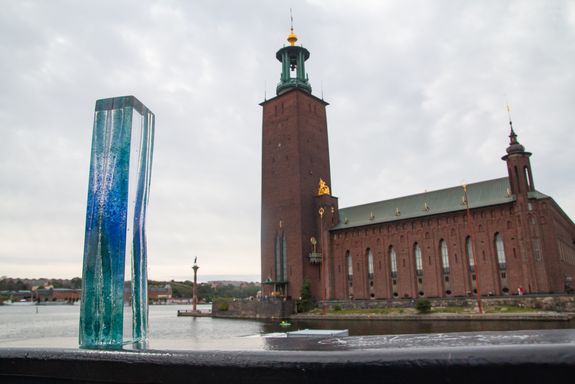When Prof. Günter Blöschl learned that he would receive the world's most prestigious water prize, he was – fittingly – surrounded by water. On the Galapagos Islands, in fact, where he was vacationing as an enthusiastic water sportsman. Blöschl was honoured for his decades of work, particularly in the field of flood research. The Stockholm Water Prize will be formally presented to him by King Carl XVI Gustaf of Sweden at a ceremony on 27 August 2025.
The secret of Günter Blöschl's scientific success lies in a very special research style – in what he calls the “Vienna School of Hydrology”: he connects topics that are often studied separately, he brings together techniques usually applied by different groups, he unites disciplines to create entirely new fields of research.
His path between disciplines, between theoretical research, computer modelling and practical engineering work, has brought him success of many different kinds: highly cited publications in the world's most prestigious scientific journals, highly endowed grants, numerous memberships and awards – and now the highly renowned Stockholm Water Prize.
Between natural science and engineering
“There are two groups in hydrology,” explains Günter Blöschl. “On the one hand, scientific hydrology, which involves geography, geosciences and scientific modelling. On the other hand, engineering hydrology, which deals with specific technical issues such as dams, flood protection and statistical measurements of water levels.”
Günter Blöschl is convinced these two worlds must be brought together: he is both a theorist and a practitioner, a scientist and an engineer. His team calculates, simulates and programs – and at the same time works with shovels and buckets to measure the flow rates of streams and compare them with the model estimates.
“Today's textbooks have a chapter on groundwater and then a chapter on evaporation. But of course it all belongs together,” emphasises Blöschl. He opens a textbook full of diagrams and equations: “All of this is important – but you won't find a single photo of water in the whole book. There's no link to practical application.” In Blöschl's office, diagrams sit next to pictures, Nature publications next to hydrological reports, measurement data alongside computer codes.
Process-based hydrology
“I would call this process-based engineering hydrology,” says Blöschl. "You have to collect data – but to make the best use of it, we need to understand the underlying processes. We need a physical picture of how the different processes of hydrology interact." Only then is it possible to gain insights that can be transferred to other situations, other regions and other water bodies.
His doctoral advisor, Prof. Dieter Gutknecht, set him on this path. Blöschl regards him not only as a scientific role model, but also as a didactic and personal one. Over the years, Günter Blöschl has passed on this holistic, interdisciplinary perspective on hydrology to nearly 80 graduates, who have carried this “Viennese School of Hydrology“ to many countries.
Humans and nature
This urge to overcome scientific boundaries ultimately led to the development of a new discipline – socio-hydrology. “Normally, you either look at nature in a form that is unaffected by humans, or you analyse specific human interventions such as dam construction,” says Blöschl. “I was discussing this one day with some American colleagues in the Griensteidl café in Vienna, and we came to the conclusion that you can look at both together.”
Water and humans influence each other. Changes in water cycles force humans to change their behaviour, and human behaviour changes water cycles. “You can directly incorporate a human component into the formulas that describe the behaviour of water,” says Günter Blöschl. “Mathematical models allow us to view nature and humans as a joint system.”
Thus, with the first socio-hydrology paper published by Blöschl in 2012, a new branch of water research was established, which has since developed rapidly. The idea has now been taken up all over the world, thousands of publications on socio-hydrology have been published, in July 2025, Blöschl gave the keynote speech at the international socio-hydrology conference in Tokyo.







